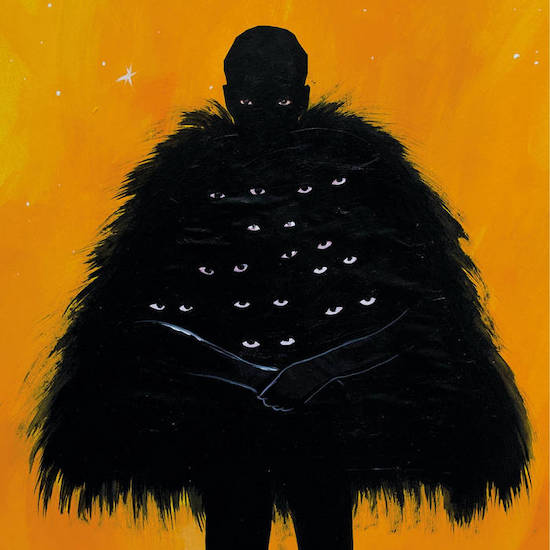At the outset of Anjimile’s first full-length album since signing to 4AD, we are treated to dense and mobile vocal harmonies sat within a warm hiss. Indeed, almost violent saturation is something of a bedrock for the album. All things seem pushed towards a threshold of harmonic distortion that reeks of simmering anger and threat. This suits Anjimile’s voice extremely well. I could listen to this rich singing indefinitely. Musically, they draw from some interesting places, notably importing the pattern-based composition that Philip Glass and the like borrowed from the African continent. Things are subsequently a glorious mix of American folk and diasporic investigation, which connect seamlessly to Anjimile’s Malawian heritage.
And this is an album about identity. It is an open wound of a record, and nothing seems off limits. The songwriter is highly critical of culture, family, and status, but with an even and sensitive hand. It is an appraisal of past and present that is well aware of context. But within that context, there is no sniff of apology. “A king won’t hide,” they declare, and later, “Are you with me?”. It feels like a challenge, not a request.
One of the most impressive things about this collection of songs is the heaviness. No rock tropes are relied on, but even the acoustic guitar manages to feel like a hammer. Like a broader, fatter version of some of PJ Harvey’s demos. There is prettiness, for sure – like the fluid picking pattern of ‘Father’ – but even here there is a weight to everything. It never feels overly oppressive, but we never lose the sense of urgency and emotional vibrancy that pours out of the songs right from the off. This is a beautifully made piece of work, both at the point of performance and production.
‘Harley’ is one of the stand-out tracks. Percussive delay bounces like stones across a dense and sometimes dissonant droning bedrock. It feels glacial. Not in the shimmering sense of Sigur Ros, but in the sense of an unstoppable movement of a huge mass.
‘Black Hole’ is a short, heavy lesson in how effective octaves can be, when well-placed under a melody, and in the strategic deployment of abrasive and extreme distortion. Both underscore the lyric and add hurt, threat, and alienation to the already fraught tension of the songwriting. This is followed by the vintage singer-songwriter chops of ‘Pray’, and you’ll find that the curation of the album, in this way, is very smart. The charged and challenging balanced carefully against the familiar and almost comforting. But it should be noted that this is not a relaxing listen. It demands attention.
The narrative is reflective and personal, but also resonant. It provides a critical and necessary voice in turbulent and troubling times in the West. Anjimile is an insider voice of pluralised minority status, and his dissenting voice feels important. They offer up their experience selflessly. “Pray for me” they ask, in stunning album closer ‘The Right’, before “haven’t I earned the right?”. This is a powerful, balanced, personal and at times harrowing album that is deserving of your attention. Each listen seems to add further layers of depth and seriousness. Spend time with it.


